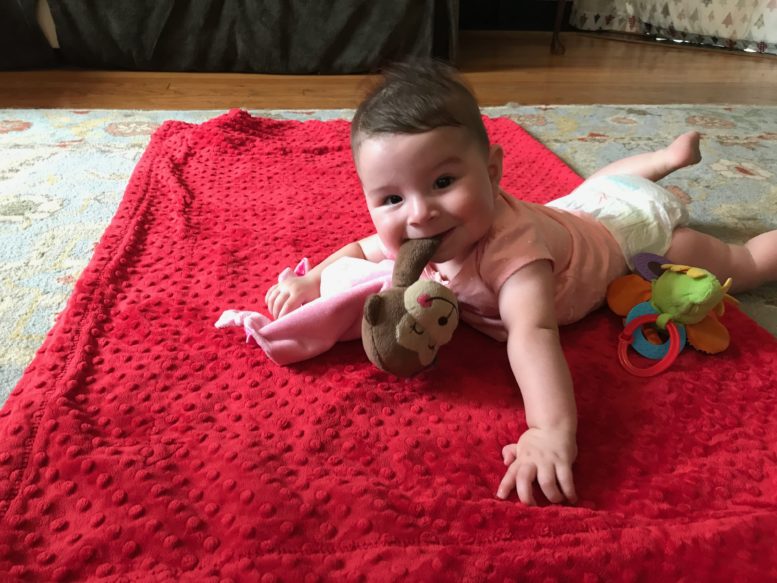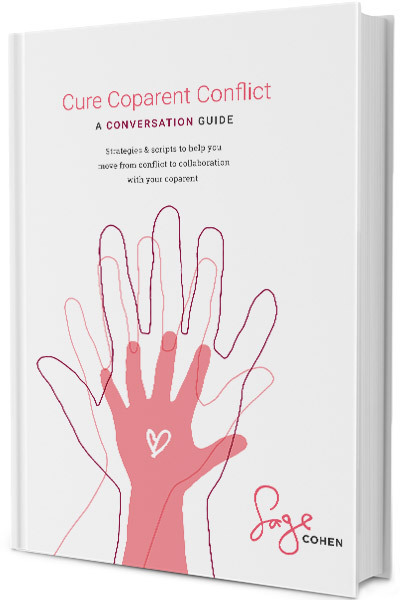I live with a twelve-year-old German Shepherd mix named Hamachi. A large dog with a large mouth, Machi gets mouthy when she’s excited. For example, during her younger days, at walk time, she would have a friendly nosh on anything in reach—my ankles, her leash, my butt—while yowling and leaping around.
Years ago, I learned to intercept this behavior by giving Machi a job to do when she is excited. Now we keep a stuffed monkey toy by the door just for her. When it’s walk time, I say in my firm voice, “Bite the monkey, Machi,” and that’s exactly what she does. All of her enthusiasm is channeled into biting and shaking that monkey, and I can get dressed for the outdoors without fear of friendly fire.
On my birthday this year, I asked myself what I know now that I didn’t know earlier in my life. The answer came immediately and simply: I know how to get out of my own way. In teaching Machi to bite the monkey, it appears I have learned to do the same. I think this is a critical life strategy. Because though we will certainly encounter plenty of obstacles out there in the world, we make things so much harder for ourselves by creating a whole range of obstacles internally as well.
Our behaviors and our attitudes are often our greatest limitations. {tweet it} The good news is that we are in charge of these. And as we learn to make different choices, our range of possibilities can dramatically expand.
Over time, I’ve developed several “bite the monkey” practices of my own in the realm of divorce and coparenting. One is to keep a (long and running) list of gratitudes about my coparent. Then, when I get triggered about something and feel like the sky is falling, I read through my gratitude list to ground myself in all that I know to be true about him and us. So I can reinvest my attention in what works well for us, and what I can count on from him.
When I find myself inundated with self-defeating thoughts, I often write them down so I can see clearly what stories have power over me. I draw two columns on a sheet of paper and label them “I once believed” and “Now I believe.” In the first column I write the negative thought, for example: “I can not talk with Pete about money.” In the second column, I rejigger the negative thought into a more positive and encouraging one: “I will tell my truth about money, and give Pete the space to tell his truth. Over time, we will calm down and find new ways to hear each other and collaborate.”
I also try to find ways to express and clear negative energy when it comes up (I often do this with a 10-minute freewriting session), because it’s much easier to be creative when I’ve allowed the old stories (and their explosive charge) to move on through.
For me, biting the monkey means finding a way to satisfy the hurt or fearful or undeveloped part of me with some meaningful activity or construct that helps it settle back down. This lets me protect my time and energy so I can stay engaged in moving forward toward what will serve my family and me best.
What does it mean to you?
How do you bite the monkey? What strategies work to get you beyond your own interference and a bit closer to what you desire?
* * * *
P.S. This magnificent baby is my son’s sister—my coparent’s new daughter. Every few weeks, we spend a precious hour together, just the two of us. As I photographed her chewing on her favorite monkey toy, I realized that Chapter 3 of my recent book Fierce on the Page, titled “Bite the Monkey” is also quite relevant to navigating divorce. And so I rewrote it here, for you.
Share this Post


